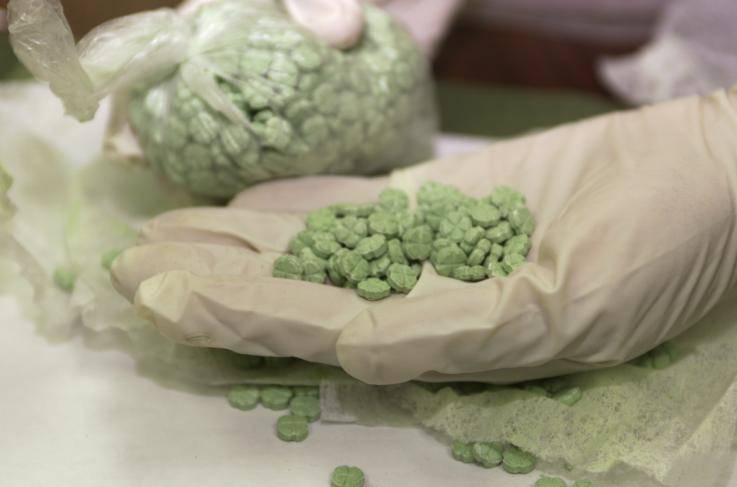MDMA, the principal ingredient in the party drug ecstasy, is about to give a lifeline to some of the worst sufferers of post-traumatic stress disorder (PTSD) in Israel—and the U.S. could be just years behind in launching similar clinical treatments using the substance.
Israel’s Ministry of Health has approved the use of MDMA, a psychoactive drug, for use on dozens of patients, Israeli newspaper Haaretz reported. While the drug is still on the country’s law books as dangerous for recreational use, it is now being administered as treatment for compassionate use.
In compassionate cases the drug will be made available to patients outside of clinical trials if they have not responded sufficiently to other medications or treatments.
Callum Paton
Some 50 patients are due to take the medication at one of four hospitals around Israel. The patients, who have all been diagnosed with PTSD during a course of psychiatric treatment, will be given the drug three times over the course of a number of sessions under close supervision.

MDMA makes people feel euphoric, a sensation that made its use synonymous with rave culture and EDM, because it floods the body with serotonin.
Serotonin is produced by nerve cells. When levels are low it can lead to depression and disrupt other physiological processes.
The launching of the new Israeli initiative is a direct result of groundbreaking research in the U.S. The Middle Eastern nation approved the program after sending a representative to the California-based Multidisciplinary Association for Psychedelic Studies (MAPS) for training.
MDMA has been illegal in the U.S. since 1985 but the findings of clinical trials, ongoing with Food and Drug Administration (FDA) approval since 2001, have shown that the drug enhances the treatment of PTSD in a clinical setting.
PTSD affects 8 million Americans, CNN reported. Symptoms include flashbacks and troubling thoughts that can lead to erratic behavior, substance abuse, problems at home and even suicide.
Individuals who have served in the armed forces or as firefighters or police officers disproportionately suffer from PTSD, which is predominantly treated with psychotherapy and prescription drugs, most often antidepressants.
Israel could now be two years ahead of the U.S. In 2017 the FDA characterized the new therapy as a “breakthrough.” The designation puts it on course to be final approval as a treatment in 2017.
The Israeli study, which will take place at Sheba Medical Center at Tel Hashomer and the psychiatric hospital in Be’er Yaakov, will involve 14 patients. However, there is a waiting list of 600 people suffering from PTSD – from a range of traumas including military combat, abuse, sexual assault, and traffic accidents – who are eager to take part in this medical trial, which is the second of its kind in Israel.
The previous trial, which was conducted at the Be’er Yaakov hospital, involved ten patients in Israel as part of a global trial involving 107 people. The results were promising and were the basis for declaring MDMA a “breakthrough treatment.” A year after the trials, 68 percent of patients experience a dramatic decrease in symptoms, and some were completely asymptomatic.
The new trial is being led by Dr. Revital Amiaz, a psychiatrist who directs the ambulatory services at the psychiatric department at the Sheba Medical Center. Amiaz previously conducted a study on the use of ketamine for treatment-resistant depression. She believes that MDMA has treatment potential for PTSD sufferers. What convinced her in part was her personal experience, having been administered MDMA in the United States as part of a study of caregivers.
